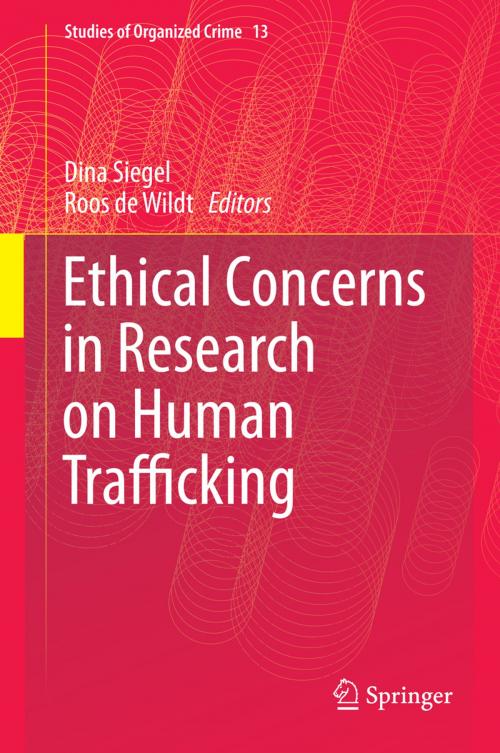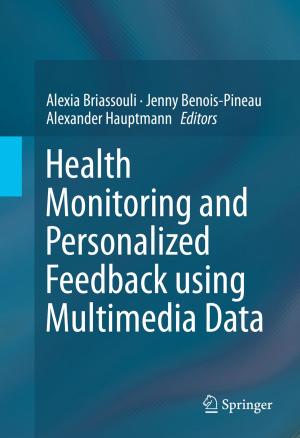Ethical Concerns in Research on Human Trafficking
Nonfiction, Social & Cultural Studies, Social Science, Human Geography, Crimes & Criminals, Criminology| Author: | ISBN: | 9783319215211 | |
| Publisher: | Springer International Publishing | Publication: | December 8, 2015 |
| Imprint: | Springer | Language: | English |
| Author: | |
| ISBN: | 9783319215211 |
| Publisher: | Springer International Publishing |
| Publication: | December 8, 2015 |
| Imprint: | Springer |
| Language: | English |
This book presents a vivid description of the solutions that researchers have discovered for ethical dilemmas that pose themselves at studying disadvantaged, vulnerable and victimized populations. Ethical codes prescribe that the scholar should in all circumstances avoid potential harm, that informed consent is necessary and that the limits of confidentiality should always be respected. However, in the practice of research among women involved in prostitution, illegal immigrant workers, enslaved children, people who sell their organs and all the traffickers thereof, the ethical rules cannot always be followed. This book shows that there is a surprising variety of arguable possibilities in dealing with ethical dilemmas in the field. Authors reflect on concrete experiences from their own fieldwork in a wide variety of settings such as the USA, Singapore, Kosovo and The Netherlands. Some choose to work on the basis of conscientious partiality, others negotiate the rules with their informants and still others purposely break the rules in order to disclose and damage the exploiters. Researchers may find themselves in a vulnerable position. Their experiences, as presented in this volume, will help field workers, university administrators, representatives of vulnerable groups, philosophers of ethics and most of all students to go into the field well-prepared.
This is a book that every researcher planning to do fieldwork in the difficult field of hidden, illicit and victimized people should read in advance.
Dr. Frank Bovenkerk, Professor (Emeritus), Willem Pompe Institute for Criminal Law and Criminology, Universiteit Utrecht, The Netherlands
This book allows a peek in the kitchen of empirical fieldwork, going into not only “best practices,” but mistakes made, in a frank, courageous and honest way.
Dr. Brenda C. Oude Breuil, Willem Pompe Institute for Criminal Law and Criminology, Universiteit Utrecht, The Netherlands
This book presents a vivid description of the solutions that researchers have discovered for ethical dilemmas that pose themselves at studying disadvantaged, vulnerable and victimized populations. Ethical codes prescribe that the scholar should in all circumstances avoid potential harm, that informed consent is necessary and that the limits of confidentiality should always be respected. However, in the practice of research among women involved in prostitution, illegal immigrant workers, enslaved children, people who sell their organs and all the traffickers thereof, the ethical rules cannot always be followed. This book shows that there is a surprising variety of arguable possibilities in dealing with ethical dilemmas in the field. Authors reflect on concrete experiences from their own fieldwork in a wide variety of settings such as the USA, Singapore, Kosovo and The Netherlands. Some choose to work on the basis of conscientious partiality, others negotiate the rules with their informants and still others purposely break the rules in order to disclose and damage the exploiters. Researchers may find themselves in a vulnerable position. Their experiences, as presented in this volume, will help field workers, university administrators, representatives of vulnerable groups, philosophers of ethics and most of all students to go into the field well-prepared.
This is a book that every researcher planning to do fieldwork in the difficult field of hidden, illicit and victimized people should read in advance.
Dr. Frank Bovenkerk, Professor (Emeritus), Willem Pompe Institute for Criminal Law and Criminology, Universiteit Utrecht, The Netherlands
This book allows a peek in the kitchen of empirical fieldwork, going into not only “best practices,” but mistakes made, in a frank, courageous and honest way.
Dr. Brenda C. Oude Breuil, Willem Pompe Institute for Criminal Law and Criminology, Universiteit Utrecht, The Netherlands















